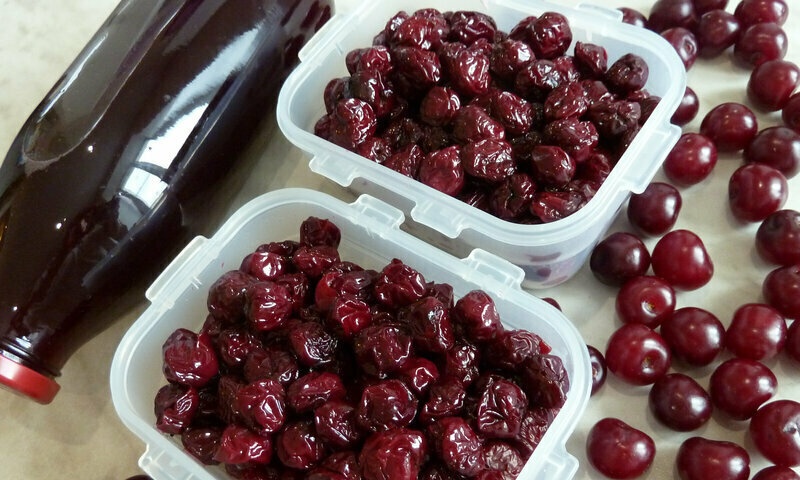|
 Your heart is beating fast - your room is too hot, physiologists say. It turns out that our well-being largely depends on how humid and warm the room is. If it is too dry - allergies may begin, too hot - the heart will suffer. If the room is cold, the person's immunity decreases, and he can pick up an infection without even going outside. Your heart is beating fast - your room is too hot, physiologists say. It turns out that our well-being largely depends on how humid and warm the room is. If it is too dry - allergies may begin, too hot - the heart will suffer. If the room is cold, the person's immunity decreases, and he can pick up an infection without even going outside.
The fact is that the cardiovascular system and the body's thermoregulation system react to changes in humidity and temperature. Therefore, even by how your heart beats, you can judge how comfortable the conditions in your room are. If the room is hot, the volume of circulating blood in the human body increases. And this increases the load on the cardiovascular system. If the heart is healthy, then there will be no special consequences from this. A healthy person may have an increased heart rate, but his health will not suffer. But if there are cardiovascular diseases, then the pressure starts to "jump" from this, the heart and head hurt. That is why those who have heart and vascular diseases are not recommended to rest in the South. For such patients, the room temperature is also important. After all, this is a microclimate that we create for ourselves in a limited space. Therefore, try to create conditions that would be comfortable for the body.
If the batteries are very hot in the room, the humidity decreases. Especially if there are no flowerpots, and the floor is not often washed. And this is evidenced not only by peeling wallpaper or cracks in the parquet. Due to the low humidity and high temperature, the room becomes more dusty. And this is harmful for those who have asthma or are prone to allergies... Therefore, asthmatics need to ensure that the humidity is normal and there is less dust in the air. This can increase the body's sensitivity to dust and trigger allergies, even in healthy people. It is bad for a person and from high humidity outside, especially when it's cold. This leads to more intense heat release, since water is a good conductor. If you don't dress warmly, you can catch a cold due to hypothermia.
It is believed that if the air in a room is too dry from heating, then a person becomes drowsy, but doctors do not agree with this. We become sleepy and tired not from changes in temperature or humidity, but from a decrease in oxygen in the room. This is how the nervous system reacts. It is most sensitive to the amount of oxygen in the air we breathe. Atmospheric pressure is "responsible" for the oxygen content, and not humidity or temperature.
The influence of weather on a person was investigated in different ways: separately, humidity, temperature, atmospheric pressure and air speed, as well as the effect of all of them, together. We came to the conclusion that the change in atmospheric pressure, and not humidity or temperature, affects most of all a person's well-being. The pressure drops and there is less oxygen. Therefore, one becomes drowsy. And from this we cannot hide anywhere. If humidity and temperature can be regulated, then we cannot influence the pressure. Both in the apartment and on the street, this pressure is the same. In addition, some types of heaters “consume” oxygen. Both open spirals and spirals hidden behind plastic grilles dry the air, thereby reducing the humidity and the amount of oxygen in the room. Oil heaters are more suitable for heating a room. They do not absorb oxygen.
 Not only will we feel worse when the room is too hot. If the temperature in the room is less than 20 ° C, it is also bad for the body. Fleeing from the cold, the body produces certain hormones that suppress the immune system. This makes a person sick. Our internal environment is much warmer - 36-37 ° С. And if the outside temperature is less than 20 ° C, then this is a command for the regulatory system that there is a danger. The vessels are narrowed, since surface receptors react to stimuli. Less blood begins to flow, we feel cold. The system begins to work to enhance metabolic processes. If you constantly get cold like that at home, it will lead to a cold. Not only will we feel worse when the room is too hot. If the temperature in the room is less than 20 ° C, it is also bad for the body. Fleeing from the cold, the body produces certain hormones that suppress the immune system. This makes a person sick. Our internal environment is much warmer - 36-37 ° С. And if the outside temperature is less than 20 ° C, then this is a command for the regulatory system that there is a danger. The vessels are narrowed, since surface receptors react to stimuli. Less blood begins to flow, we feel cold. The system begins to work to enhance metabolic processes. If you constantly get cold like that at home, it will lead to a cold.
Physiologists say that the most optimal humidity for humans is about 50%. The optimum temperature in the living space: 20 ° C heat. Indoor plants help regulate the humidity in the room, so put more flowerpots. It is thanks to the large number of flowerpots in the room that the optimal humidity value is maintained. They affect the indoor climate. After all, water from the soil evaporates and humidifies the air. Besides, houseplants and they themselves release moisture into the atmosphere, purify the air from dust and give oxygen. Therefore, flowerpots especially help to maintain the humidity in the room.
By the way, putting containers with water on the windowsill is not the best way out of the situation. If we artificially increase the humidity, and the room is also hot, then we simulate a steam room. Then the heat transfer decreases. The human body overheats, it begins to sweat more. And also, flowers in a room are more aesthetically pleasing than vessels with water on the windowsills. But if they are not installed, then the air will be too dry in the "bare" room, where the heating only works. And it's bad for health.
Asya Novikova
|
 Your heart is beating fast - your room is too hot, physiologists say. It turns out that our well-being largely depends on how humid and warm the room is. If it is too dry - allergies may begin, too hot - the heart will suffer. If the room is cold, the person's immunity decreases, and he can pick up an infection without even going outside.
Your heart is beating fast - your room is too hot, physiologists say. It turns out that our well-being largely depends on how humid and warm the room is. If it is too dry - allergies may begin, too hot - the heart will suffer. If the room is cold, the person's immunity decreases, and he can pick up an infection without even going outside.



